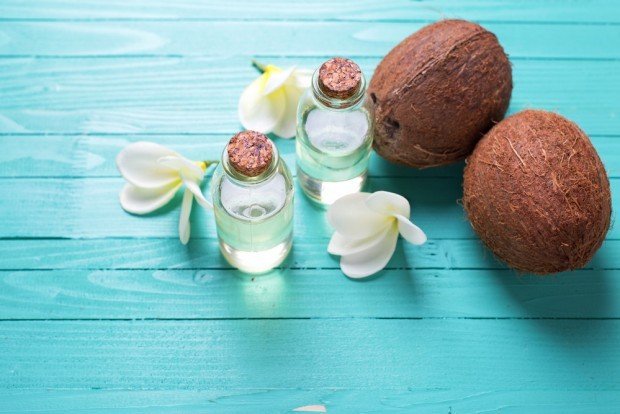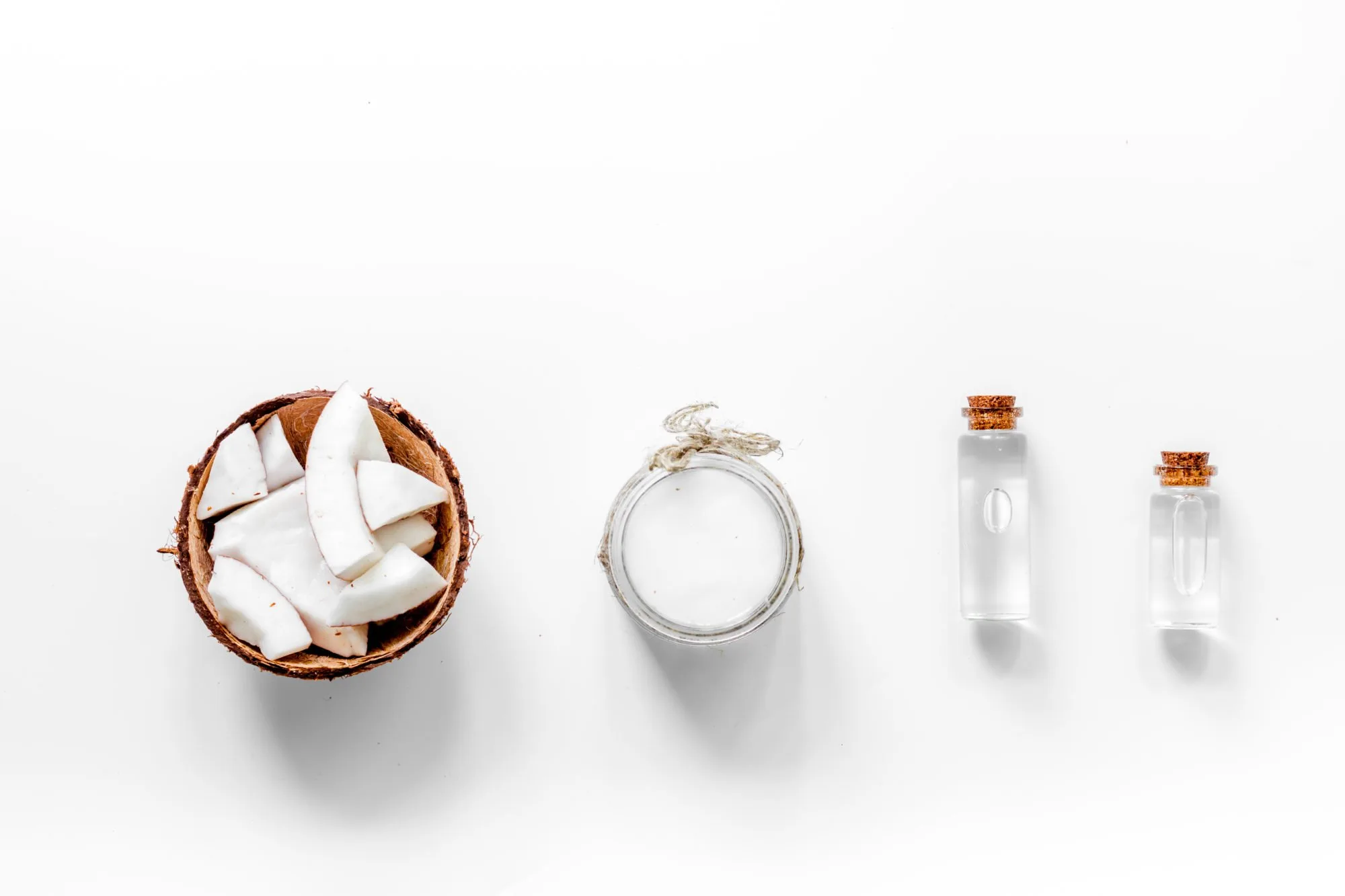Coconut is everywhere. There’s coconut water, coconut milk, coconut oil, coconut flour, and even coconut cream. Dating back over 4000 years, coconuts have risen in popularity over the past few years. This is as a result of its versatility as well as dense nutritional value.
The kernel, which is raw white meat inside a coconut, is rich in antioxidants as weak as protein, B vitamins, and other essential nutrients (1).
The production of coconut-based foods
The milk is derived directly from the kernel and is created when water is added to the grated kernel. The water forms naturally in the fruit, and it is found at the center of a young, green coconut. What’s more, it’s also dairy-free which makes it perfect for vegans and individuals who are lactose intolerant.
The flour is made when the dried kernel is processed and ground into flour. Virgin coconut oil, on the other hand, is made by pressing the dried kernel. The refined oil, on the other hand, undergoes additional refining processes that involve bleaching and deodorizing.
Does coconut provide any benefits?
Helps healthy skin
Coconut oil could be the secret to everlasting, healthy skin.
Research published in the Internal Journal of Molecular Sciences revealed that the oil contains anti-inflammatory and anti-aging properties. This may then help address various skin concerns. This includes protecting against the damaging effects of UV rays, alleviating symptoms of atopic dermatitis, providing relief from burns, and helping to effectively moisturize the skin.
Helps control seizures
Courtesy of the keto diet, ketones are molecules that not only help to increase fat burning but may also provide numerous other benefits, one of which includes helping to treat seizures.
MCTs are medium-chain triglycerides, and they are absorbed by the body, quicker than other fats, as they go straight from the gut to the liver. In the liver, it is where the MCTs then produce ketones. Because coconut oil contains MCT, there is a consensus that consuming it may serve to provide relief from seizures and epilepsy (2).
May alleviate Alzheimer’s symptoms
5.7 million Americans are currently living with Alzheimer’s disease and this number is set to rise to 16 million by 2050. 
The brains of Alzheimer’s patients soon lose the ability to create their own glucose for brain energy. As mentioned, coconut oil contains MCT which helps to generate the production of ketones. In regards to this, research has linked ketones to help improve the cognitive abilities of Alzheimer’s patients by providing an alternative energy source for the brain (3).
May help control blood sugar
According to an animal study published in the Journal of Basic and Clinical Physiology and Pharmacology, diabetic rats who were fed coconut water experienced lower blood sugar levels.
Additionally, another study found that the oil helps to slow down the rate at which sugar is released into the bloodstream, which then helps to control blood sugar levels.
May help with weight management
According to various bodies of research, MCTs can help reduce appetite and speed up metabolism. They may also encourage the loss of fat. This may be why a study published in the Journal of the Academy of Nutrition and Dietetics found that coconut oil helps to reduce belly fat.
May improve cardiovascular health
As mentioned, coconuts are rich in antioxidants and these molecules are incredibly effective at maintaining and improving heart health.
Research published in the Evidence-Based Complementary and Alternative Medicine journal, linked daily consumption of 2 tablespoons of virgin oil to increased HDL cholesterol levels.
High blood pressure is often a precursor to cardiovascular disorder, yet one small study published in the West Indian Medical Journal found that 71% of people with high blood pressure who consumed coconut water later experienced improved blood pressure readings.
Protection against yeast infection
A yeast infection is what happens when there are an imbalance and uncontrolled growth of yeast in the body, which soon leads to an infection. Symptoms often include severe and uncomfortable vaginal itching, unusual odors, and pain and burning during both sex and urination. However, the consumption of coconut oil may help to offer relief from these symptoms.
The oil contains capric acid and lauric acid – compounds that are effective at killing off bacteria, viruses, and fungi. That said, research found in the Journal of Medicinal Food revealed that the substances helped to kill off Candida albicans – a compound that may lead to yeast infections.
Protects optimal dental health
Oil pulling is an ancient practice from Ayurvedic medicine that helps to maintain oral health. The act involves swishing and gargling a teaspoon of oil in your mouth for 15-20 seconds every morning and evening. According to a study published in the Nigerian Medical Journal, oil pulling using coconut oil can help to move oral bacteria, which then reduces the risk of gingivitis.
But what about the concerns about coconut oil?
In 2017, the American Heart Association (AHA) shared a report on saturated fats, in which they highlighted how saturated fats may increase LDL cholesterol levels, and thus linked their consumption to a possible increased risk of heart disease.
Due to its MCT content, coconut oil can still be healthy. It’s just best to consume it in conjunction with a healthy diet. That said, if you’re looking for healthy cooking oil, then you can always opt for extra virgin olive oil. You should also only enjoy a daily teaspoon of coconut oil. The AHA recommends that men should stick to 30 grams per day. They also suggest that women opt for 20 grams per day.
 Buying coconut-based foodstuffs
Buying coconut-based foodstuffs
Coconut Water
If you’re looking to drink the water, simply crack open a fresh, green coconut.
However, if you’re not anywhere near a tropical island, it’s best to buy it cold-pressured, such as ZICO Natural. Cold-pressed products have undergone the least amount of processing. Be sure to read the ingredients. If you notice added fruit juices, or any other additional ingredients, put the water back on the shelf. Additionally, stay away from concentrated mixtures as they are also void of any essential nutrients.
Coconut milk
Similar to the water, it’s always important to read the nutritional label when buying coconut milk. This is because some products may contain added sugar, sweeteners, and preservatives. – all of which you need to avoid.
Also, don’t shy away from buying organic and canned milk – just be sure that the cans are free of BPA.
Coconut oil
Again, keep a close eye on the nutritional label to ensure that the oil is free of trans fat. Additionally, look out for virgin, unrefined, and organic oil if you really want to reap all of its benefits.



 Buying coconut-based foodstuffs
Buying coconut-based foodstuffs![women [longevity live]](https://longevitylive.com/wp-content/uploads/2020/01/photo-of-women-walking-down-the-street-1116984-100x100.jpg)











One Comment